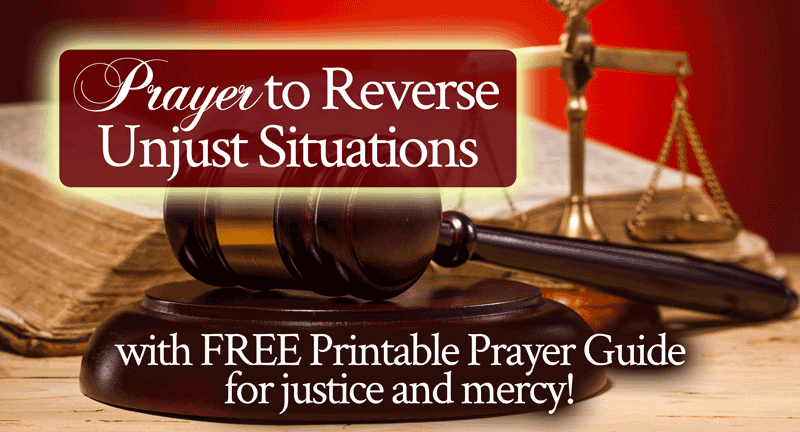Anointed or Annoying? The Case FOR Direct Address in Prayer
1×1 mentoring phone calls OR DREAM INTERPRETATION
WEBINAR JUNE 18: THE ANOINTINGS OF JOSEPH, EPHRAIM, AND MANASSEH

Have you ever been in a prayer meeting and gotten annoyed by numerous mentions of the Lord’s name in someone’s prayer? You know, those prayers that say: “Please help us, Father God. We need You, Father. Jesus, we love You! Send Your Spirit, Father, and help us, Father!”
Or maybe you have even read a prayer here our website, and found yourself bothered by how many times I have called on God by name in a written prayer.
If so, I wanted to address this somewhat humorous issue and see if we can make some sense of it together today. Because the question is …

Get our free PDF Prayer to Reverse Unjust Situations when you sign up for our free email encouragement program!
we SEND OUT urgent PROPHETIC UPDATES AND ALL FREE GIFTS BY EMAIL ONLY, SO we HOPE YOU’LL LOVE our EMAIL program. BUT, YOU CAN UNSUBSCRIBE ANYTIME if not. no hard feelings.
To what extent is calling on God’s name anointed versus annoying?
I will be the first to say I don’t like it when people make fun of other people’s prayers. In my opinion, if people aren’t praying to you (and they aren’t), leave them alone when they pray to God. How He receives their prayers is up to Him.
But I do want to say that I empathize if you’ve found yourself annoyed by this particular habit some people have. I have also been guilty, at times, of lifting an eyebrow during a group prayer meeting, wishing (as a participant and observer) a personal wish that whomever was praying would get on with it and SAY what they’re trying to say! 😊
Additionally, I have written prayers that, although some people have called them anointed, other people have complained that they don’t want to call on the various names of the Lord THAT MUCH. And, I understand. To each their own. 😊
Reader FavEs
Wind of Heaven
Want powerful, Scriptural prayers for every situation? Then grab Wind of Heaven: 12 Prayers for the Kingdom to Come in Your Life!
I do also believe that, sometimes, the use of the word (pick any name of God that a person repeats over and over) can feel overused. Sometimes, when you’re listening to a person pray, it can feel like they don’t have a clue what they’re saying or what they’re asking God for, so they just keep rambling by saying a lot of “Father God” or “Jesus.”
But here’s the thing:
I have also heard people pray who add the name “Father God” to nearly every other sentence, and if you listen with your spirit rather than your flesh, it has been powerful and anointed praying.
What makes the difference between anointed and “annoying” when you call on God’s name a lot?
I believe the key is found in relationship, and that the relationship of the praying person can be both heard and felt as they pray.
Here’s what I mean:
In the olden days (1700s-1800s, for example), it was customary for people of the opposite gender to address one another by title, such as “Miss So-and-So” or “Mr. So-and-So.” It was simply not done to use first names, which they called “Christian names.”
Even if a man and a woman considered themselves to be friends, they did not refer to one another by first name unless they had a romantic relationship. And if public society heard them speaking to one another on a first-name basis, it was considered scandalous unless an engagement announcement soon followed.
Even though our society has lost its appreciation for the intimacy of referring to one another by first name, God has not.
For example, the first name He chose to disclose when He told us about His sevenfold Holy Spirit was the fact that Holy Spirit is the Spirit of Yahweh. (See Isaiah 11:2.)
Getting to Know the Sevenfold Holy Spirit: A 12-Day Devotional Guide
Get the book and focus on communion with God’s Holy Spirit for 12 days! Remember that He is your Helper, Comforter, and Advocate. You can’t truly know God without knowing His Holy Spirit!
“Yahweh” is God’s covenant name; His “first name,” if you will. It is the name He revealed to Israel as an indicator of His relationship and covenant with them. He gives us that kind of access to Himself through Christ, and knowing His real first name is not to be taken lightly! Calling on God by name is an intimate thing.
Additionally, in Isaiah 43:1, the Lord even tells us that He considers calling us by our name to be an indication that we belong to Him. This passage says:
“But now, thus says the Lord, who created you, O Jacob, and He who formed you, O Israel: “Fear not, for I have redeemed you; I have called you by your name; You are Mine” (Isaiah 43:1 NKJV).
He named us because we are His. He has the exclusive right to name us because of His relationship with us.
Well, friend, even though maybe it can feel annoying sometimes when you’re listening to someone pray, and they just repeat the same name of God over and over …
I would like to put forth to you today that the difference between anointed praying and annoying praying, when it comes to “direct address” (which means addressing God repeatedly by name), can be measured by either of two things:
- Relationship; and
- Faith.
You see, when you call on God as your Father, putting all your heart into that call because you are drawing on your intimate, Father/child relationship with Him, you (and everyone hearing you pray) can feel it.
Reader FavEs
Fall passionately in love with Jesus!
Do you burn with hunger for the Lord? Then the prayers and prophetic insights in Nearer to the Ageless One: Prayers to Love the Son of God are for you!
Get this book today and encounter the eternal destiny God has for you in His Son, Jesus Christ!
But if you’re just saying empty words—words that sound good, but into which you are not pouring your heart and soul—it sounds and feels empty to the hearers.
Similarly, calling on God by name (“direct address”) is often a passionate plea that conveys your faith in Him TO MANIFEST HIMSELF AS A CERTAIN THING, or in a certain way.
For example:
- If you need Him to move armies on your behalf, you might call on Him as the Lord of hosts.
- If you are drawing on Him as your Father and coming to Him as a little child, the address of “Heavenly Father” shows your posture of submission and dependence upon Him.
- If you are calling on Him to save your prodigal child, the name of “Savior” becomes very real to you and will probably pop up repeatedly in your prayers.
- If the world seems dark around you, your spirit might rise up and call on Him as the Light of the world, or as Daystar, in your prayers.
- If you’ve received a bad diagnosis or other bad report, you might want to remind the Lord that the blood of Jesus speaks a better word than your bad report. In that case, I’d bet you might remember at those times that He is Alpha and Omega. He is the First Word and the Last Word, and His Word is the only report that abides forever.
Here’s my point:
In the Scriptures, God reveals His various names to teach us attributes about Himself. And when we pray, His Spirit rises up in us and helps us to call on Him using those names. He does this because calling on His various names conveys our faith that He will demonstrate those attributes to us in our time of need.
It’s true that prayers can sound annoying if the depth of faith or relationship aren’t evident as a person addresses Jesus, the Father, or Holy Spirit by any of their names.
But it is equally true that prayers can be Heaven-shaking and earth-moving when prayed by someone who DOES have that depth of faith or relationship, and who is calling on the Lord with all their heart.
But it’s not about percentage of word use.
The difference between annoying versus anointed public prayer is not found in the percentage of words that call on God’s name in any given sentence.
Think of the blind man on the road to Jericho in Luke 18:38. He called on the Lord using eight words: “Jesus, Son of David, have mercy on me!” In that prayer, four of his eight words—exactly 50%!—were speaking the names of God, and only four words—the other 50% of his prayer—actually told God and people what he wanted.
Some people would get annoyed today if they had to listen to a prayer in which 50% of the words directly addressed God.
But the blind man didn’t care about our intellectual sensitivities.
All he cared about was putting the cry of his heart into words. And those eight words got him healed, because:
- When he called on Jesus, he was speaking the Name that is above every name.
- When he called Jesus “Son of David,” he was telling Jesus that he believed in His Kingship and Lordship. The Jews all knew that the name “Son of David” meant “Messiah.” It wasn’t merely a reference to Jesus’ biological ancestry. So calling on Jesus as the Son of David expressed his faith in Jesus’ divinity; he was openly confessing Jesus as Messiah.
- And after this blind man, in those four words, simultaneously called on the Lord and confessed his faith in Jesus as God, Jesus healed him. Happily and immediately.
In fact, Jesus pointed out in Luke 18:42 that it was his faith—which was demonstrated by these eight words—that had made him well.
How did the blind man demonstrate his faith?
Want to learn more about what Jesus purchased for you with His precious blood?
In Crimson Flood: How to Plead the Crucifixion of Jesus in Legal Prayer, Jamie teaches you how to present the blood of Jesus to God as your evidence for why you should receive ALL of His manifest promises.
God answers some prayers faster, and more miraculously, than others. Learn how to pray through all aspects of Christ’s passion in legal prayer, and watch God do great and mighty things on your behalf!
It’s not like they had a long conversation, in which Jesus subjected him to a doctoral examination of his theology. No; the once-blind man’s faith was demonstrated by simply calling on the name of the Lord.
And when he called on the NAME of the Lord, expressing who he knew Jesus to be THROUGH that direct address, Jesus asked him what he wanted Him to do for him—and he got what he asked for.
Time would fail us to discuss all such cases in Scripture where direct address conveys a person’s measure of faith in God.
Think about the prayer that the apostle Paul told us we all pray by the Holy Spirit: “Abba! Father!”
That’s a two-word prayer with 100% of the words being made up of direct address. But would people be criticized in modern church culture if they prayed a prayer, even from the depths of their spirit, made up 100% of calling on the name of the Lord?
Probably so.
But they shouldn’t be.
I admit that sometimes it can be bothersome to listen to people praying dry prayers that seem to convey no purpose or relationship.
But even in those cases, who are we to judge another’s heart? It seems like Romans 14:4 says something about “Who are we to judge another’s servant?” … and that it is before their own Master that they stand or fall—and that they will stand.
Also, Romans 8:26-27 tells us that none of us know how to pray perfectly, but that Holy Spirit translates and interprets all our prayers and actually intercedes for us Himself, so that the prayers will arrive before the Father’s throne perfectly.
It’s almost as if none of us have made it, and all of us are on a journey of learning. 😊
So, beloved, have you found yourself criticizing someone’s verbal or written prayer—especially criticizing how many times they have called on the name of the Lord?
If so, might I lovingly suggest that we each simply let Holy Spirit do His work and translate all of our prayers perfectly?
And when it comes to formally-published prayers, of course there is always editing to be done … but could we find it in our hearts to read the prayers from the heart, and from our spirit—rather than criticizing how many times the author or pray-er has called on the Lord of hosts, Jesus, very God of very God, the great Majesty in the heavens?
Yes, sometimes dry prayers can be annoying. But I would like to put forth today that the measure of “dryness” of any prayer is not found in how many times we directly address the Lord—but rather in whether or not our hearts burn within us as we pray.
What are your thoughts on this topic? Leave a comment below!


Hello Jamie! I agree that using the different names of God/Jesus/Holy Spirit can be part of being specific about the need we are praying for, and show the degree of our relationship with Him. And, our prayers aren’t usually perfect; some people who interject ‘umm’, ‘like’ or other placeholder words in their everyday speech -usually while they are thinking of what to say next or just out of habit- will also repeat God, Jesus, etc when they pray.
But I have also seen that annoyance with repeated uses of His names can actually indicate the LISTENERS’ current relationship status with Jesus. I had a friend who went through a period of being backslidden, and years later (after she had re-dedicated herself to God) she told me how annoyed she felt when talking to me during that time. To her perception, it seemed I talked non-stop about church events and brought up God, Jesus & the Bible every other word! Although I really wasn’t, maybe 1 sentence out of every 10 actually did – but because of her backslidden state, those words were the Holy Spirit prodding her that her relationship with him needed attention, and because of being in a state of sin, it made those words feel extra offensive to her soul and seem as if they were repeated a lot. So I think that can be another aspect of why some prayers seem annoying to others.
Jamie, Jamie, Jamie,
What a perfectly and beautifully written.
Jamie,
I too am guilty of this judgment. And I agree wholeheartedly that we should leave God’s work to him as we don’t know the mind or heart of the prey-er. Thanks for this detailed and thought provoking reminder.